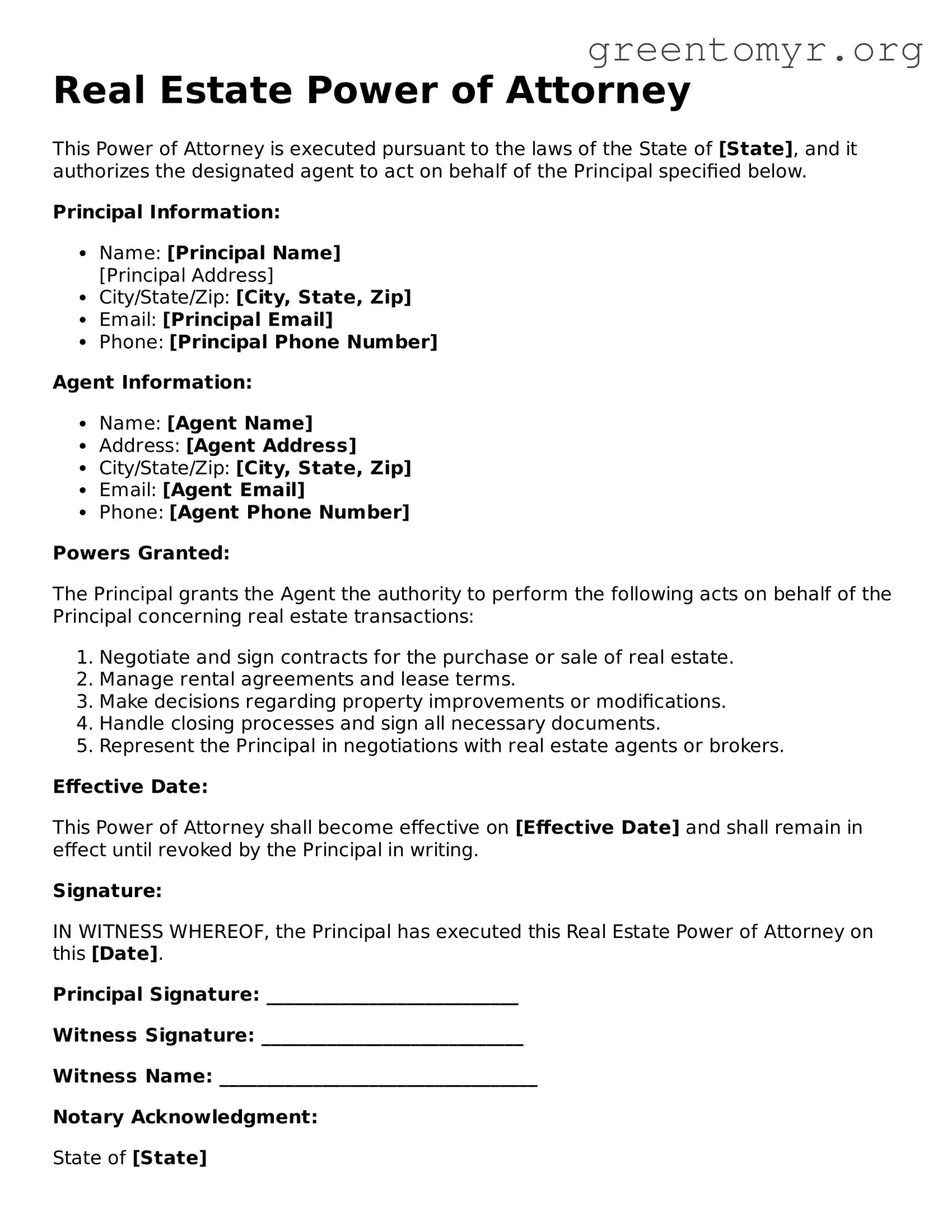What is a Real Estate Power of Attorney?
A Real Estate Power of Attorney is a legal document that allows one person, known as the agent, to act on behalf of another person, known as the principal, in real estate matters. This can include buying, selling, or managing property. The agent has the authority to make decisions related to the property as specified in the document.
Who can be a principal in a Real Estate Power of Attorney?
Anyone who owns property can be a principal in this agreement. This includes individuals, married couples, or business entities. The principal must be of sound mind and legal age (typically 18 years old) to create a power of attorney.
Who can be designated as an agent?
The agent can be a trusted friend, family member, or even a professional, such as an attorney or a real estate agent. It's essential to choose someone reliable and knowledgeable about real estate transactions, as the agent will have significant authority over the principal's property.
What powers can be granted in a Real Estate Power of Attorney?
The powers granted can vary based on the principal's wishes. Common powers include:
-
Buying or selling real estate
-
Managing property
-
Leasing or renting property
-
Handling disputes related to real estate
-
Signing documents related to real estate transactions
Does a Real Estate Power of Attorney need to be notarized?
Yes, most states require the document to be notarized. Notarization adds a layer of authenticity and ensures that the principal's signature is valid. Additionally, some states may have specific witnessing requirements, so it's important to check local laws.
Can a Real Estate Power of Attorney be revoked?
Yes, a principal can revoke the power of attorney at any time as long as they are mentally competent. To do this, they must inform the agent in writing and often notify any third parties who may be involved in real estate transactions.
What happens if the principal becomes incapacitated?
The Real Estate Power of Attorney typically remains valid even if the principal becomes incapacitated if it is designed as a durable power of attorney. However, if it is not durable, the power may end upon the principal’s incapacitation.
Are there any limitations on the powers granted?
Yes, the principal can limit the powers granted to the agent. They can specify which transactions the agent can handle or set conditions that must be met. It's essential to be clear about these limitations in the document to avoid misunderstandings.
You can find Real Estate Power of Attorney forms through various sources. Many legal websites offer downloadable templates, or you can consult an attorney to draft a customized form that suits your needs. Always ensure that any form you use complies with your state’s requirements.
After the Real Estate Power of Attorney form is completed and duly signed and notarized, provide copies to the agent and keep a copy for your records. Inform relevant parties, such as your bank or real estate agents, that the power of attorney is in effect so they can recognize the agent’s authority.
